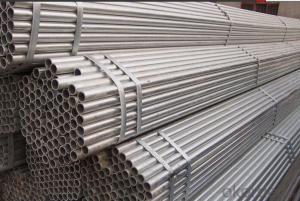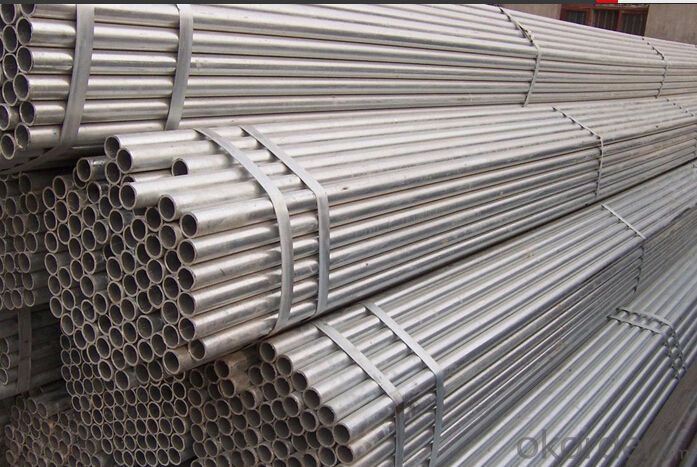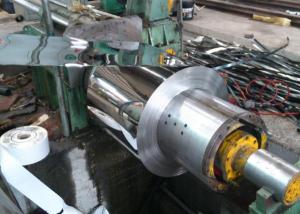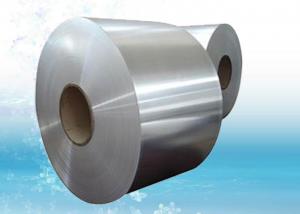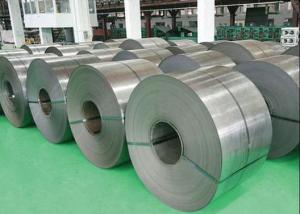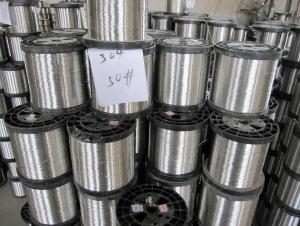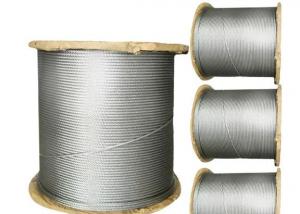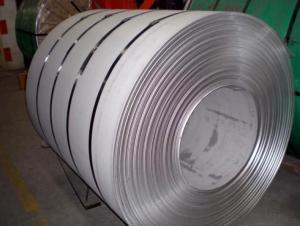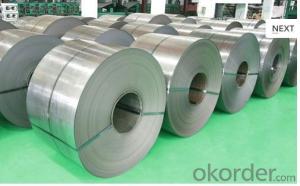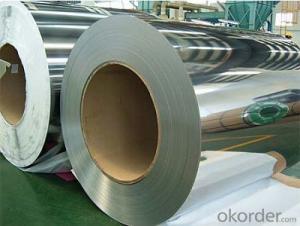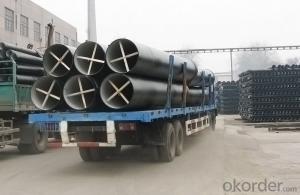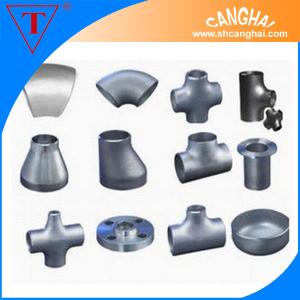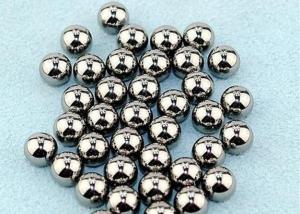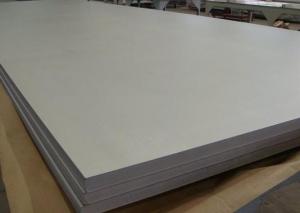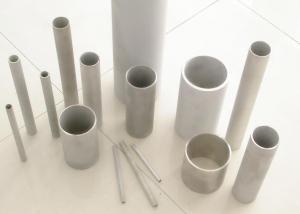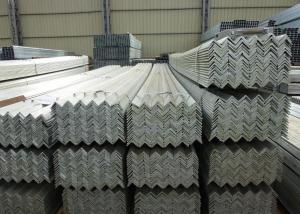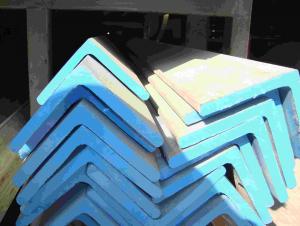PLANTE PIPE
- Loading Port:
- China Main Port
- Payment Terms:
- TT OR LC
- Min Order Qty:
- -
- Supply Capability:
- -
OKorder Service Pledge
OKorder Financial Service
You Might Also Like
ERW pipes are used in Water Pipelines, Agriculture and Irrigation (Water Mains, Sewerage Systems, Industrial Water Lines, Plant Piping, Deep Tube-Wells & Casing Pipes). Other popular application area includes usage in gas pipe lines (pipe lines for natural gas, LPG and other non-toxic gases). The SW is meant for shallow water applications This could be in a canal, natural stream, culvert, or pipe.
Steel Specification:
Thickness: 0.2-3.0mm
Width: 600-1500mm
Coating Mass: Z08,Z12,Z18,Z20,Z22,Z25,Z27,Z35
Z80,Z120,Z180,Z200,Z220,Z250,Z275
Tolerance for thickness,width,flatness and so on conform to the requirements of JIS G3302 or ASTM A653M/924M
Coil ID can be either 508mm or 610mm, maximum coil OD is 2000mm
The speicfication of ASTM Such as A653m,A924 M and so on have been updated to the latest revisions
Application:
BUILDING & CONSTRUCTION
Floor decks, ceilings, verandas, rolling doors, warehouse, partitions, sheds, gutters, wall, underground piping, sashes, beams, fences, scaffolding, indoor decorations, ducts, ventilating pipes, steel frames and cable trays.
ELECTRICAL APPLIANCES
Freezers, video recorder cases, motor cases, lighting fittings, water heaters, washing machines, refrigerators, stoves, air conditioners, dehumidifiers, fluorescent light housings, electrical heaters, toasters, microwave oven enclosures and switch boxes.
TRANSPORTATION
Containers, under body panels, bus & truck body panels, fuel tanks, noise screens, highway signs, air cleaners, conveyor systems and guard rails.
AGRICULTURAL EQUIPMENT
Barns, drying machines, animal houses, hoppers, irrigation systems, greenhouses, water tanks, sheds, silos, agricultural implements and feeders.
FURNITURE & OTHERS
Vending machines, drums, cans, pails, sauna inner parts, chimney pipes, entertainment machines, solar collectors, office equipment, steel furniture, tool boxes, garages and waste bins.
COMPUTER'S APPLIANCES
Computer shells and communication instruments。
Surface Treatment:
Chromating treatment or anti-finger print
Surface Finished:
REGULAR SPANGLE:
Regular spangle is also called normal spangle which is naturally formed without any additional treatment during galvanizing.
MINI SPANGLE:
The spangle is restrained and formed as mini spangle by reducing the lead content in the zinc liquid or by blowing the zinc powder from the equipment installed on the zinc pot.
EXTRA SMOOTH:
The mini spangle is further skin-passed to produce the extra smooth surface.
- Q: Are stainless steel strips resistant to nitric acid?
- Stainless steel strips are typically resistant to nitric acid. Renowned for its exceptional corrosion resistance, stainless steel shows commendable resilience against various acids, including nitric acid. Nevertheless, the degree of resistance may fluctuate based on the particular grade or alloy of stainless steel employed, alongside the nitric acid's concentration and temperature. It is highly advisable to seek guidance from the stainless steel manufacturer or supplier for precise details regarding their products' resistance to nitric acid in your specific application.
- Q: Can stainless steel angles be used in the electrical industry?
- Yes, stainless steel angles can be used in the electrical industry. Stainless steel is known for its corrosion resistance, durability, and high strength, making it suitable for various applications in the electrical industry, such as cable trays, conduit supports, junction boxes, and electrical enclosures. Additionally, stainless steel angles can provide structural support and enhance the overall stability of electrical installations.
- Q: How do I prevent intergranular corrosion on stainless steel sheets?
- To prevent intergranular corrosion on stainless steel sheets, there are several steps that can be taken: 1. Opt for the appropriate stainless steel grade: Choose stainless steel grades that are specifically designed to resist intergranular corrosion, such as 304L, 316L, or 321. These grades have a lower carbon content, which minimizes the formation of chromium carbides at grain boundaries. 2. Apply heat treatment: After fabrication or welding, subject the stainless steel sheets to a solution annealing or post-weld heat treatment process. This treatment eliminates any chromium carbides that may have formed during welding or high-temperature processing, effectively preventing intergranular corrosion. 3. Avoid high temperature exposure: It is crucial to avoid subjecting stainless steel sheets to temperatures between 450 to 850 degrees Celsius (842 to 1562 degrees Fahrenheit) for extended periods. Prolonged exposure to such temperatures can lead to the formation of chromium carbides at the grain boundaries, rendering the stainless steel susceptible to intergranular corrosion. 4. Utilize proper welding techniques: When welding stainless steel sheets, it is important to employ low heat input and minimize the duration of exposure to high temperatures. These measures help reduce the formation of chromium carbides and preserve the corrosion resistance of the stainless steel. 5. Employ pickling and passivation: After fabrication or welding, ensure that the stainless steel sheets undergo thorough pickling and passivation. Pickling removes any surface contaminants, while passivation forms a protective oxide layer that prevents intergranular corrosion. 6. Regularly maintain and clean: To prevent potential corrosion, it is essential to keep the stainless steel sheets clean and free from contaminants. Regularly clean the surfaces using mild detergents and avoid the use of harsh chemicals or abrasive materials that may damage the protective oxide layer. By following these preventative measures, the risk of intergranular corrosion on stainless steel sheets can be significantly reduced, allowing for the preservation of their corrosion resistance properties and an extended lifespan.
- Q: Are stainless steel channels suitable for the manufacturing of equipment enclosures?
- Yes, stainless steel channels are suitable for the manufacturing of equipment enclosures. Stainless steel is a highly durable and corrosion-resistant material, making it an ideal choice for enclosures that need to protect equipment from environmental factors such as moisture, chemicals, and temperature fluctuations. The strength and rigidity of stainless steel channels also provide excellent structural support, ensuring the enclosure can withstand heavy loads or potential impacts. Additionally, stainless steel has an attractive appearance and can be easily cleaned, making it suitable for applications where aesthetics and cleanliness are important. Overall, stainless steel channels are a reliable and versatile option for manufacturing equipment enclosures.
- Q: Are stainless steel strips suitable for automotive trim applications?
- Indeed, automotive trim applications benefit greatly from the use of stainless steel strips. Renowned for its robustness, resistance to corrosion, and pleasing aesthetic, stainless steel proves to be an exceptional option for enhancing automotive trim. Withstanding the harshest weather elements, chemical exposure, and impacts, stainless steel guarantees long-lasting performance. Moreover, its sleek and refined appearance elevates the vehicle's overall aesthetic appeal. Not to mention, stainless steel strips require minimal effort to maintain and keep clean, making them a highly practical choice for automotive trim applications.
- Q: Are stainless steel pipes resistant to UV radiation?
- Yes, stainless steel pipes are generally resistant to UV radiation. The high chromium content in stainless steel helps protect it from the damaging effects of UV radiation, making it a suitable choice for outdoor applications.
- Q: Can stainless steel flats be used in architectural applications?
- Yes, stainless steel flats can be used in architectural applications. Stainless steel is a versatile material that offers a combination of strength, durability, and aesthetic appeal, making it suitable for various architectural projects. Stainless steel flats can be used for cladding, roofing, decorative elements, handrails, balustrades, and other structural components in buildings. They are resistant to corrosion, which is essential for maintaining the appearance and integrity of architectural structures. Additionally, stainless steel can be fabricated into different shapes and finishes, allowing architects to create unique and visually appealing designs. Overall, stainless steel flats are a popular choice in architectural applications due to their durability, versatility, and modern aesthetic.
- Q: Can stainless steel channels be used for supporting heavy-duty machinery?
- Yes, stainless steel channels can be used for supporting heavy-duty machinery due to their high strength and durability. Stainless steel is known for its resistance to corrosion, which makes it suitable for environments where machinery may be exposed to moisture or chemicals. Additionally, stainless steel channels can provide excellent structural support, ensuring the stability and safety of heavy machinery.
- Q: What is the minimum thickness available for stainless steel sheets?
- The minimum thickness of stainless steel sheets can differ depending on the grade and manufacturer. Nevertheless, typically stainless steel sheets are readily obtainable in thicknesses that span from 0.4mm to 6mm. Certain manufacturers might even offer thinner sheets, like 0.3mm, for particular applications. To ascertain the precise minimum thickness that suits your specific needs, it is crucial to consult with the supplier or manufacturer.
- Q: Can stainless steel wire be used for wire rope slings assemblies?
- Indeed, wire rope sling assemblies can utilize stainless steel wire. This type of wire boasts remarkable resistance to corrosion, rendering it appropriate for scenarios in which the sling may come into contact with harsh environments or chemicals. Moreover, stainless steel wire possesses exceptional tensile strength and durability, enabling it to endure substantial loads and frequent use. Nevertheless, it is crucial to verify that the stainless steel wire employed in the wire rope sling assemblies complies with the necessary specifications and standards required for the intended application.
Send your message to us
PLANTE PIPE
- Loading Port:
- China Main Port
- Payment Terms:
- TT OR LC
- Min Order Qty:
- -
- Supply Capability:
- -
OKorder Service Pledge
OKorder Financial Service
Similar products
Hot products
Hot Searches
Related keywords
